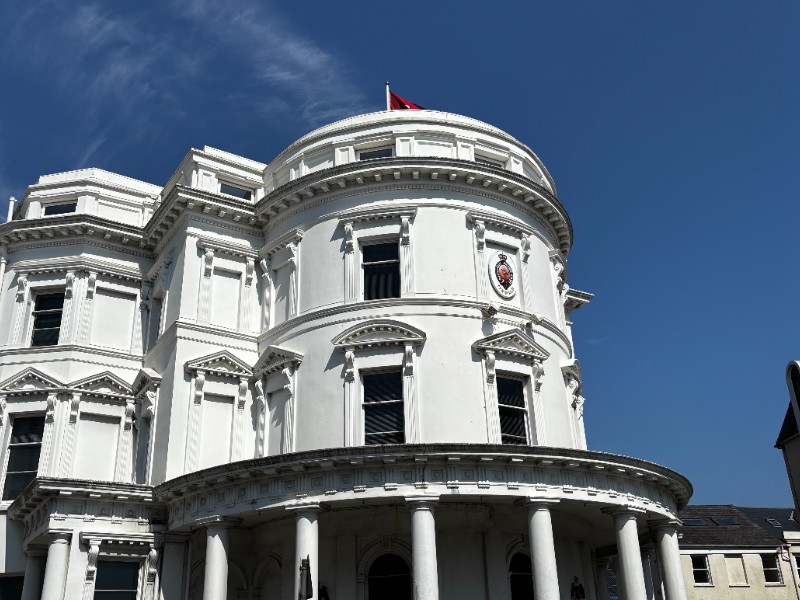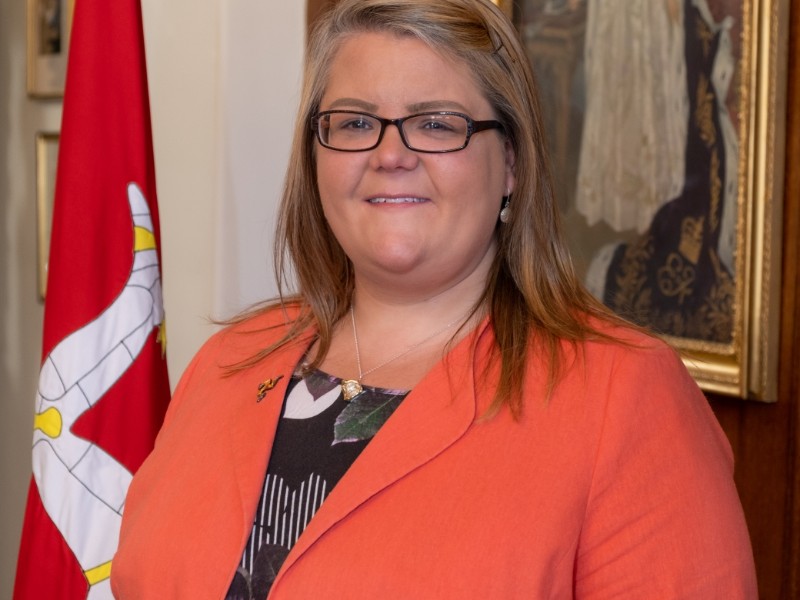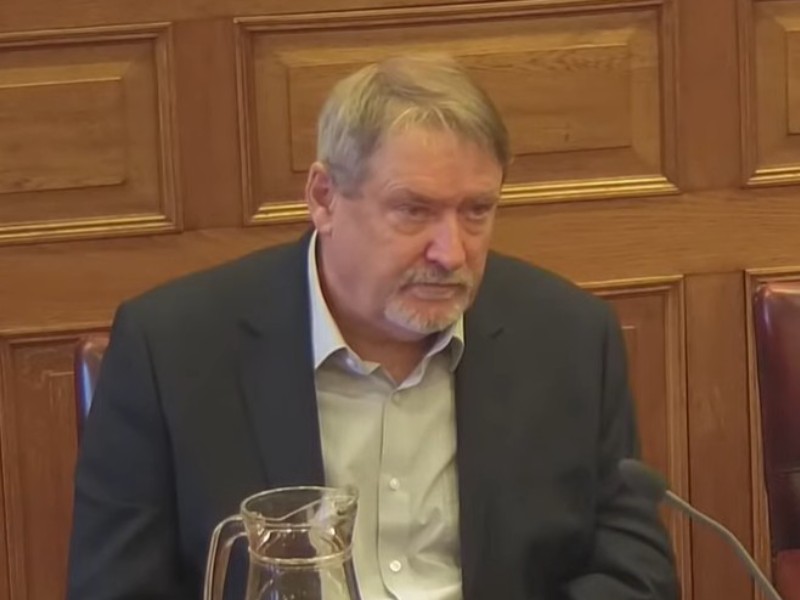
Debate follows release of government guidance discouraging disclosures to media or politicians
Tynwald has returned to the issue of whistleblowing - just days after the government released a new policy that "strongly discourages" public servants from taking their concerns to the media or politicians before exhausting internal channels.
The document, published on the eve of the October sitting, outlines how government employees and contractors can raise concerns about wrongdoing such as criminal activity, breaches of legal duties, or risks to health and safety under the Employment Act 2006. It also introduces new oversight measures, requiring departments to report all whistleblowing cases in anonymised form to the Office of Human Resources from November.
However, the policy has drawn attention for warning that going directly to elected representatives or the media is "unlikely to be protected" under the law and could "hamper investigations" - a clause which some politicians have suggested could deter disclosures in the public interest.
Against that backdrop, Onchan MHK Julie Edge has called for the creation of a Tynwald Select Committee to investigate how whistleblowing has been handled across government since a 2021 resolution on the issue.
Her motion seeks an inquiry into the implementation and impact of the current policy, the use of non-disclosure agreements within public bodies, and whether public sector organisations are equipped to address failures identified by whistleblowers.
The proposed committee would report by March 2026, with a debate scheduled by May that year.
Onchan MHK Julie Edge (mover)
Opening the debate, Onchan MHK Julie Edge said the new whistleblowing policy, published only days earlier, had left members with limited time to review it in full. She described the document as "based on control rather than honesty" and argued that it fails to provide a safe and impartial route for employees to raise concerns due to what she called "serious conflicts of interest at the heart of the system".
Ms Edge criticised the section of the policy that discourages staff from approaching the media or elected representatives, saying this risks driving people "straight to an employment tribunal" rather than resolving matters internally. “We are contacted when the system has failed - we are their last resort," she told Tynwald.
She said the intent of the policy appeared to "strip staff of statutory rights" and "bury inconvenient truths", adding: "It’s shocking - I can only assume those who wrote this document have never had to blow the whistle themselves."
Ms Edge warned that the public must have confidence in how government conducts itself, and said the current structure was "failing" to meet that test. With more than 7,000 people working across the public sector, she said it was inevitable that disputes would arise - but insisted that systems should exist to handle them fairly and transparently.
Calling for a Select Committee, she said she had received disclosures from "almost every part of government" and believed Tynwald scrutiny was essential to ensure statutory duties are being met and to examine the use of non-disclosure agreements.
"We do not want to foster a culture of fear. Are we going to allow a culture of retaliation, or are we going to take steps to restore public trust? If we do nothing, we send a message that silence will be rewarded. Without trust, government cannot function and democracy cannot thrive."
Concluding her remarks, Ms Edge said her motion was "not about grandstanding" but about fulfilling a duty to protect the public and strengthen the integrity of the public service.
Chief Minister Alfred Cannan
Chief Minister Alfred Cannan tabled an amendment proposing that the Select Committee, if established, should comprise five members rather than three.
Mr Cannan used his speech to describe whistleblowing as a "vital mechanism" for upholding integrity across the public service. He maintained that the current framework was "robust" and continuing to improve, assuring public servants that any suspicions of serious wrongdoing would be treated "seriously and with respect".
Mr Cannan claims the government had made "various improvements" to whistleblowing arrangements since 2021, including reinforcing legal protections to mirror best practice in the United Kingdom. He added that the updated policy reflected recent legislative changes and aligned the Isle of Man with "the highest standards".
Training on whistleblowing procedures is mandatory for all staff, with refresher training every three years, and there were now 30 designated Whistleblowing Officers across the public service.
Mr Cannan emphasises that employees who chose to report concerns to "non-prescribed" individuals such as politicians or the media would not be protected under the Employment Act 2006, saying the government’s policy was designed to align with legislation already approved by Tynwald.
He noted that whistleblowing cases remained rare within the public service, but believes improved data collection would enable trends and systemic issues to be identified more easily.
The chief minster acknowledged that the language used in parts of the new policy - particularly the section discouraging staff from approaching the media or politicians - may need to be reworked to ensure it is not misinterpreted.
Chair of the Public Services Commission, Onchan MHK Rob Callister
Chair of the Public Services Commission and Onchan MHK Rob Callister apologised for the wording of certain parts of the new whistleblowing policy and committed to reviewing and reworking the language.
He said one of the key challenges was ensuring individuals who raised concerns felt confident their disclosures would be taken seriously and properly investigated. However, he noted there remained "considerable confusion" over the distinction between a genuine whistleblowing case and an employment dispute.
Mr Callister explained that whistleblowing involves reporting wrongdoing that affects others or the wider public, with the intent of exposing misconduct in the public interest rather than for personal gain. By contrast, employment disputes typically involve issues such as unfair treatment or contractual disagreements, which are addressed through Human Resources procedures or employment tribunals.
Arbory, Castletown and Malew MHK Tim Glover
Arbory, Castletown and Malew MHK Tim Glover says it is important to prevent situations where whistleblowers’ mental health deteriorated because their concerns were not being properly addressed.
He claims some of the cases being raised involved "very serious issues" and stressed that most individuals coming forward were "not seeking financial gain" but rather aiming to "rectify a fault that needs to be fixed and never happens again".
Mr Glover said he supported the chief minister's proposed amendment to expand the committee from three members to five, describing it as a "very good idea" given the likely workload and the scale of issues to be examined.
Attorney General Walter Wannenburgh
Attorney General Walter Wannenburgh told Tynwald he could not comment on any ongoing proceedings but spoke more generally about the responsibilities of his office.
He said it was "incumbent upon [his] chambers to act in the public interest" and that he would continue to ensure that all claims brought forward were properly tested and understood.
Mr Wannenburgh added that this approach "should not be regarded as an attempt to undermine the position of a whistleblower".
Douglas Central MHK Chris Thomas
Douglas Central MHK Chris Thomas believes it is important for elected representatives to be informed about matters of genuine public interest, particularly where there may be danger or unlawful activity.
"If there is something that is in the public interest, we do need to know about it as representatives of the public".
Mr Thomas described the wording of the new whistleblowing policy as "threatening", though he welcomed the commitment by the Chair of the Public Services Commission to revise it.
He adds that politicians and officials should never assume public servants who raise concerns are merely “grumpy”, stressing that their comments should be taken seriously as they may point to genuine risks or failings within the system.
Vote
Tynwald approved Chief Minister Alfred Cannan's amendment. Subsequently, a Select Committee has been set up comprising of the following members:
- Lord Bishop Tricia Hillas
- Onchan MHK Julie Edge
- Arbory, Castletown and Malew MHK Tim Glover
- Douglas Central MHK Ann Corlett
- MLC Gary Clueit

 Patients 'strongly satisfied' with virtual GP pilot
Patients 'strongly satisfied' with virtual GP pilot
 Tynwald backs major overhaul of Isle of Man planning system
Tynwald backs major overhaul of Isle of Man planning system
 Laxey Christmas Market returns
Laxey Christmas Market returns
 Lecture to highlight work of 'trailblazing' Annie Swynnerton
Lecture to highlight work of 'trailblazing' Annie Swynnerton
 Government consultations need 'more objective and neutral' approach
Government consultations need 'more objective and neutral' approach